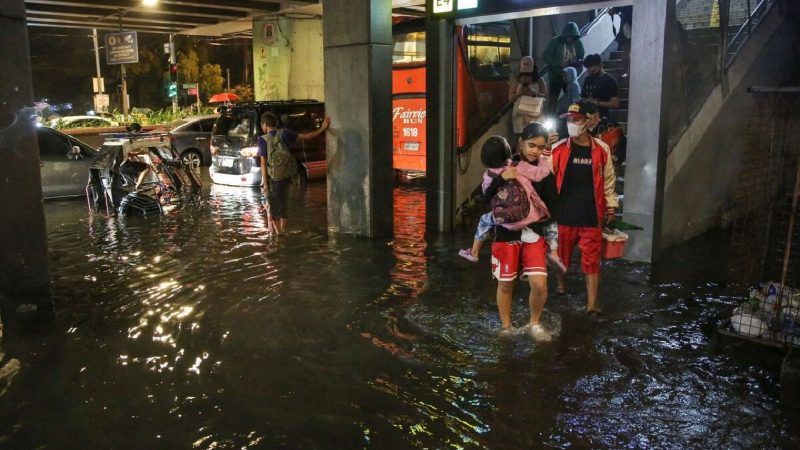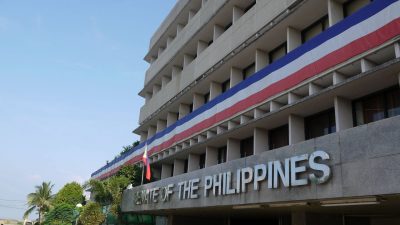A section of Taft Avenue near the LRT Quirino Station in Manila was submerged due to the recent onslaught of typhoon Egay, as shown in a photograph provided by Bloomberg.
Climate Change Commissioner Albert Dela Cruz Sr. has emphasized the necessity for empirical studies conducted by scientific experts regarding the environmental consequences of reclamation projects, especially in light of climate change’s adverse effects. These effects lead to extreme weather conditions, causing flash floods and the deterioration of marine resources.
Despite the call to halt reclamation projects in Manila Bay, Dela Cruz urges caution. Various senators have already advocated for their suspension, citing their detrimental impact on the environment. This impact not only disrupts the ecology and biodiversity of Manila Bay but also mars its renowned sunset view.
In a previous announcement, Ma. Antonia Yulo-Loyzaga, the Secretary of Environment and Natural Resources, revealed the formation of an expert team tasked with evaluating ongoing reclamation projects and their environmental effects. Similarly, Justice Secretary Jesus Crispin Remulla has called for a review of all reclamation project contracts in Manila, noting that the Philippine Reclamation Authority’s (PRA) awarding of contracts seemed rushed and lacked proper public hearings.
Commissioner Dela Cruz echoes Senator JV Ejercito’s concerns about the potential disappearance of the iconic Manila Bay sunset.
Thus, Dela Cruz advocates for a thorough review of the environmental impact of proposed reclamation endeavors.
Fondly recalling his own childhood memories of enjoying the sea breeze and sunset along Roxas Boulevard, he suggests that authorities initiate comprehensive studies of Manila Bay’s reclamation projects.
If these projects persist, they could obstruct the sunset view and exacerbate flooding in Metro Manila and nearby regions.
Addressing other local government units (LGUs) considering reclamation projects within their jurisdictions, the climate official reiterates the importance of establishing local climate change action plans. These plans would contribute crucial insights for the proper execution of reclamation efforts.
Dela Cruz concludes that while reclamation might foster economic development and livelihood expansion in certain areas, studies indicate that there are environmental impacts that necessitate careful consideration before initiating such undertakings.
(ai/mnm)







